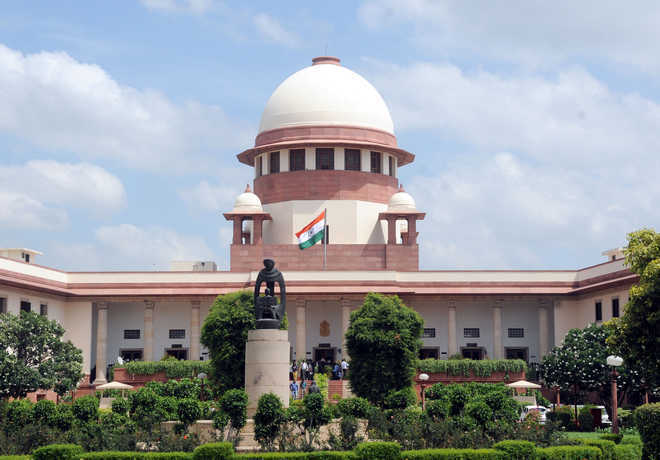SC acquits Punjab man in 21-year-old NDPS case
Satya Prakash
Tribune News Service
New Delhi, August 18
Ruling that a fair investigation is a part of right to fair trial guaranteed under Article 21 of the Constitution, the Supreme Court has set aside the conviction under the Narcotic Drugs and Psychotropic Substances (NDPS) Act of a man from Punjab who was allegedly caught with 4-kg opium by a police officer.
A three-judge bench headed by Justice Ranjan Gogoi emphasised that in cases under the NDPS Act where the burden of proof was reversed, the investigation carried out should be free from apprehension of bias or unfairness.
The bench, which set aside the conviction of accused Mohan Lal -- sentenced to 10-year imprisonment with a fine of Rs 1 lakh in a 21-year-old case -- said a law with certainty is required to be laid down owing to the importance of a fair investigation as a Constitutional Right under Article 21, particularly from the point of view of an accused.
The ruling clears the air on the contentious issue on which two-judge benches of the top court had earlier expressed contradictory opinions. "A question like this cannot be left open to be determined on the individual facts of a case," it said.
Normally, it is for the prosecution to prove the guilt of the accused in any criminal case. But under the NDPS Act, burden of proof has been shifted to the accused, who has to prove his/her innocence.
However, writing the judgment for the bench, Justice Navin Sinha said this presumption was "rebuttable". The bench, which also included Justice R Bhanumathi, said the requirement of the prosecution to prove a prima facie case beyond a reasonable doubt cannot be done away with based on the presumption under the NDPS Act, especially when the provisions are so stringent.
"The case of the prosecution cannot be allowed to rest on a preponderance of probabilities," the top court noted.
"Unlike the general principle of criminal jurisprudence that an accused is presumed innocent unless proved guilty, the NDPS Act carries a reverse burden of proof under Sections 35 and 54. But that cannot be understood to mean that the moment an allegation is made and the FIR recites compliance with statutory procedures leading to recovery, the burden of proof from the very inception of the prosecution shifts to the accused, without the prosecution having to establish or prove anything more. The presumption is rebuttable," explained the bench.
"It is therefore held that a fair investigation, which is but the very foundation of fair trial, necessarily postulates that the informant and the investigator must not be the same person. Justice must not only be done, but must appear to be done also," it said.
The accused was "caught" by Sub-Inspector Chand Singh of Balianwali Police Station while on patrol duty on February 3, 1997. He was accompanied by Sarpanch Darshan Singh and Assistant Sub-Inspector Balwinder Singh. Rajinder N Dhoke (IPS) was called and the appellant was searched, leading to recovery of 4 kg of opium in a bag carried by him.
Allowing the appeal, the bench said, "In a case like this with a reverse burden of proof, if the informant police official was himself carrying out the investigation, the investigation will be marred by serious apprehensions regarding his impartiality and fairness. The result of such an investigation will be viewed as a 'foregone conclusion'."










